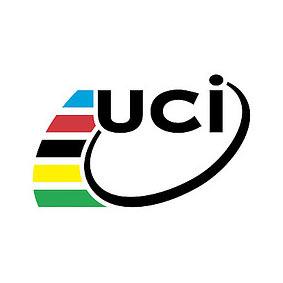UCI releases report for its anti-doping foundation
Summary of CADF's activities for 2010-2011

The Union Cycliste Internationale (UCI) today released a 20-page business report for the activities of its Cycling Anti-Doping Foundation (CADF) for the previous two years, 2010 and 2011.
"During 2010 and 2011, CADF activities were focused on consolidating and improving the Biological Passport Program (BP)," the report stated. "The use of this very important tool in the fight against doping was progressively modified in order to emphasize quality instead of quantity. By applying "intelligent testing", we were able to perform fewer tests on riders having normal ABP profiles (based on a significant number of samples already collected), while more tests were performed on riders having abnormal blood profiles."
Highlights of the report include such data as the total amount of testing carried out in 2010 and 2011 for all cycling disciplines. In the former year, a total of 13,019 tests were carried, subdivided into the amount of blood and urine tests conducted in three categories: in-competition, pre-competition and out-of-competition. For 2011 the total amount of blood and urine tests remained at a comparable size, with a marginal increase to 13,057.
The report noted that those figures did not include the 600 samples collected for medical monitoring before the Grand Tours and also that the 2011 figures are not entirely complete as the CADF is still receiving Doping Control Forms for samples collected in 2011.
The report provided the total number of professional male road riders who were included in the biological passport. In 2010, 848 riders from 18 ProTour teams and 17 Pro Continental teams took part. The following year 955 riders were included in the biological passport, from 18 ProTour teams and 23 Pro Continental teams.
Among the total tests for all disciplines of cycling, the biological passport testing accounted for 8,346 tests in 2010 and 8,660 tests in 2011. The report cited the new targeted testing approach in 2011 as the reason that the overall testing rate was only slightly higher in 2011 despite the increase from 35 to 41 teams participating. In both 2010 and 2011, each rider in the biological passport program on average provided two out-of-competition urine samples and three out-of-competition blood samples.
Five stakeholders made financial contributions to the CADF - the UCI, riders, organisers, UCI ProTeams and UCI Pro Continental teams - with the UCI ProTeams paying the most each year. In 2010 the overall financial contributions totalled 6,916,959 CHF, of which 3,141,300 came from the ProTeams. In 2011 the financial contributions totalled 6,680,000 CHF, of which 2,700,000 came from the ProTeams.
Get The Leadout Newsletter
The latest race content, interviews, features, reviews and expert buying guides, direct to your inbox!
The report also showed "that cooperation with governmental and non-governmental organizations has been reinforced." The CADF has signed agreements with national anti-doping organizations in Norway, Canada, UK and with the Flemish community. In France, an agreement was reached with the AFLD for them to act as a service provider for testing during 2011 UCI events within the country. Discussions are currently underway with national anti-doping organisations from Switzerland, United States, Australia and Germany.
"This shows the quality of the work that is being done in this area," said UCI president Pat McQuaid. "The UCI anti-doping program has become a worldwide reference in the medical and prevention sector and it allows us to now target and catch those who cheat. We will continue to invest in this area to ensure our sport stays safe, clean and fair".
The full CADF report is available on the UCI site.